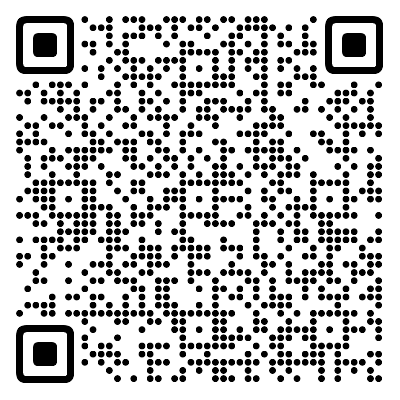Personal Statement
Program: Economics
If judged by the criterion that “Discovery consists of seeing what everybody has seen and thinking what nobody has thought,” I find myself in the midway of this odyssey of academic discovery. In my studies of economics as an undergraduate, I have laid an undoubtedly firm foundation for more advanced pursuits. It is only a foundation and to reach the summit of economics from my present foothold I have to know more and think more.
As one of the most excellent undergraduates of China’s much celebrated Central University of Finance and Economics (CUFE), I am not only the laureate of uncountable honors and prizes in my academic work, social activities, specialized and non-specialized contests but also the author of three published research papers with much originality that have been issued in the core scholarly journals of economics in China. The research achievements represented by those three papers have resulted in my winning the “CUFE Research Achievement Scholarship” and “CUFE Ten Most Outstanding Students in 2001”, two honors that symbolize the highest academic achievements attained by undergraduates. Apart from my own natural aptitudes, all my accomplishments are derived from the powerful motivation related to my creed of life “to be useful to the society”, to my creative learning strategies, and to my skepticism toward prevailing orthodoxy and my readiness to inquire into challenging problems in economic reality.
But most important of all, my academic pursuit up till now has been characterized by the principle of “making the most rational choices among a host of alluring opportunities”. My relative prominence both in my coursework and in my extracurricular involvements has presented me with many important alternatives—to become the president of CUFE’s Student Union, to undertaken a Master’s program in CUFE waived of the unusually requisite entrance examination in my status as the top second student in my department. Yet, it is the ideal to develop myself into a prominent economist and to serve my country and our society that has prompted me to the current decision—to apply for a Ph.D. program in economics at such a reputed education and research institution as the University of ---------------. I believe that essentially my most “rational choice” consists of no more than opting for the most challenging course of action.
In 1999 I won fourth prize in the National Encyclopedic Knowledge Contest for Middle School Students and the organizer of this event sponsored a tour of China’s seven major cities. The tour, which happened in a period of the worst economic conditions for the past decade, exposed me to the distressed life of the laid-off workers from the state-owned enterprises and the alarming financial disparities of urban dwellers. That summer, I was offered the privilege of entering the Geology Department of Peking University without entrance examination but the experience of the tour triggered my determination to study economics. Finally, with distinguished performance at the nationwide university entrance examination I was matriculated into the Department of Economics and Management of CUFE. This constituted the first important choice in my journey of studying economics.
Just as Keynes required that “an outstanding economist must display a combination of talents,” I have made conscious efforts to develop my intellectual capacity in a comprehensive manner. In learning economics, I did not confine myself to the successful completion of coursework. Actually, my trainings went quite beyond requisite coursework. I read the English versions of two authoritative textbooks-- Economics (the 16th edition) by Samuelson and Economics by Manken, in addition to classics including The Wealth of Nations by Adam Smith, Das Capital by K. Marx and A General Introduction to Employment, Interest, and Currency by Keynes. I benefited immeasurably from communicating and interacting with some of the best minds of economics in human history across time and space. This was especially true for my first two years of study when I was in a most impressionable state of mind. I was most enlightened by the illuminating perspectives and research approaches of those great masters of economics when addressing their research problems. But I had the habit of doing my own tentatively critical reflections when examining their theories, keeping in mind the fact that economics is always modified by the changing circumstances. This mode of inheriting economics legacy with a critically eye has served to lay a solid academic foundation for me in the second stage of my undergraduate program during which I devoted myself to undertaking independent research.
Although as an undergraduate I have primarily been receiving basic academic trainings in economics without specific concentrations, I have tried to perform extensive explorations and independent thinking to ferret out my interests. When learning Game Theory, I applied it to the study of two specific economic issues in China and wrote two research papers The Nash Equilibrium in Our Daily Life—A Study in Connection with my Salary Model and Setting an Upper Limit or Imposing Taxation—A Study of Chinese Government’s Fishing Policy in the Yellow Sea by Means of a Model. Those two papers received very encouraging comments from the dean of my department. They also brought me first prize (I was the sophomore contestant) in the annual treatise competition launched by the United Association of Economics Study of Institutions of Higher Learning in Beijing. As a special honor, I was invited to attend a national symposium on economics at which I interacted with China’s leading scholars from which I drew inspiring illuminations and encouragements. Although my training in economics can by no means described as complete and systematic, my ability to carry out creative reflections and to perform research on specific economic issues made it possible for me to publish a total of three formal research papers in core national journals within the two years subsequent to the treatise competition. Respectively entitled The Challenges for China’s Textile Export Produced by its WTO Accession and Possible Countermeasures, The Impact of September 11 Terrorist Attack on China’s Import and Export Business, and The Function, Background, Main Problems and Their Countermeasures Concerning the Stock Index Futures in China’s Futures Market, my publications enabled me to reap CUFE’s two highest academic honors that an undergraduate could possibly attain.
Having immersed myself extensively in classic works of economics and attempted at some serious scholarship, I have now decided to focus on macroeconomics in my future degree program at your esteemed graduate school. This decision is made on the basis of two motivations. First, macroeconomics is a research field full of exciting challenges. When studying this course as a sophomore, I became interested in those following macroeconomic issues—how the model of real economic cycle can be gradually integrated into mainstream economic categories, how new growth theory can be verified by positivistic studies, what are the positive values of Keynesian theories for the present-day world? Second, as a developing country under the context of global economic integration, China’s future economic development is a subject that deserves serious research. On the other hand, China will undoubtedly call for a considerable number of accomplished macroeconomists to contribute their wisdom to the formulation of long-term economic policies. As a 21-year old young student who is bent on becoming an economist useful to his country and the society, to be engaged in macroeconomic research naturally becomes my best choice.
American economy, whatever its inherent deficiencies and problems, is the paradigm of market economy, the most important framework of reference for Chinese economy which is undergoing major transformations. A systematic and rigorous training in your Ph.D. program focusing on western macroeconomics is literally a prerequisite for me to fulfill my ambition of conducting advanced research on China’s macro economic issues in the future. This factor underlies my current determination to file my application for admission into your graduate school which is necessarily competitive. As a most celebrated university in economics teaching and research, the University of Chicago has always been an important cradle of influential economic thoughts and theories. I believe that only in such a university will it be possible for me to learn the essentials of economics and to be subjected to the most rigorous yet rewarding trainings in methodologies of economics. And only such a university can help me tap my research potential to the fullest extent.
On the macro level of human history, the life of any individual is transitory like that of a fleeting meteor. The honors and awards I have received can only testify to the fact that I am relatively outstanding than most of my counterparts in China. I have the self-awareness that there is still a long way to go before I can fulfill my ultimate aspiration. I cannot guarantee that I will definitely become a very accomplished economist. But that will always remain a ideal toward which I will make unremitting efforts.
精彩活動(dòng) 海外院校 升學(xué)導(dǎo)師 成功案例 背景提升 國(guó)際游學(xué) 海外服務(wù)
留學(xué)國(guó)家: 美國(guó) 加拿大 英國(guó) 澳大利亞 新西蘭 亞洲國(guó)家 歐洲國(guó)家
院校推薦: 美國(guó)大學(xué)院校 英國(guó)大學(xué)院校 澳洲大學(xué)院校 加拿大大學(xué)院校 新西蘭大學(xué)院校

